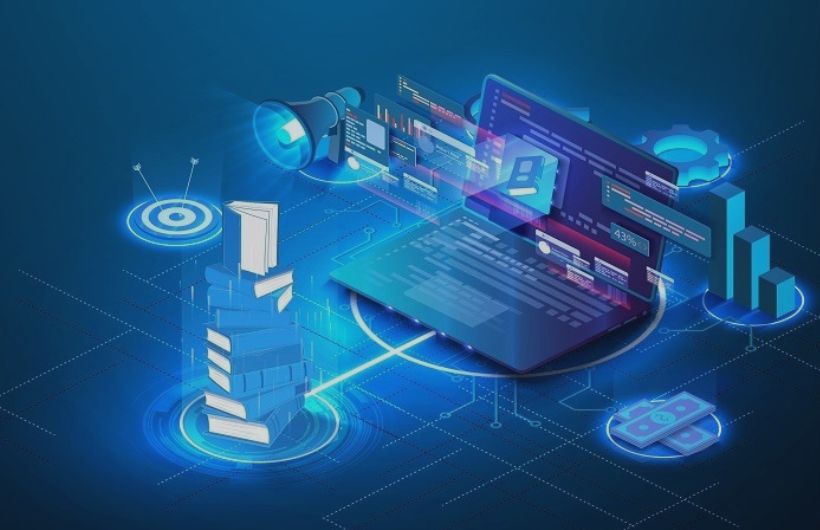Whether you have a degree in Education and wanting to learn more about the business side of education, or someone wanting to gain additional knowledge and insights about developing a new Edtech startup, this Masters degree program awarded by University of Chichester UK might be just the right program for you.
STUDY MODEL
1 year online
ACCREDITATION
VALUE ADD
EduTech and Instructional Design (30 credits)
When it comes to education, one of the most important aspects of teaching and learning strategies revolve around instructional design. In other words, we need to make sure that the teaching materials we prepare are relevant to the learning we want to achieve, our resources are appropriate and that they are accessible, and that the assessment is linked to the learning outcomes we intended when designing a course.
During this module, students will have the opportunity to test out instructional design principles for traditional and online learning, evaluating the role of embedded EdTech tools in the mix.
Agile Digital Transformation (15 credits)
In the past, organisations from around the world had to deal with the rapid growth of the use of technology and its applications within every aspect of the business.
The module focuses on the practical tools, practices, processes, and techniques used to deploy successful digital transformation projects.
Students will be introduced to the internal and external factors that can make or break these types of projects, including the role of customers in the ever-complex mix. Topics such as digital leadership, change management and the VUCA (Volatility, Uncertainty, Complexity and Ambiguity) of the digital world will be introduced, to facilitate a deeper understanding of the processes, models and capabilities involved.
Theories of teaching and Learning (15 credits)
We have always been fascinated with how we learn, and the best ways to teach others the knowledge and skills we have. Since Socrates, we understand that knowledge is powerful, and we aim to maximise our ability to interpret the world around us.
In this course, we will look at the traditional theories of teaching and learning, using case studies to better understand their practical implications, and we will investigate how and if we are learning differently from the past, and whether fancy tech tools are always better than traditional ones.
Digital Storytelling and Video Production (30 credits)
A fundamental part of our teaching and learning is based upon effective storytelling and the ability of the “mentor” to paint a vibrant picture of a concept, fact, or anything else we learn. Visual aids such as videos have a significant impact on our success in learning while being thoroughly engaged and our creativity pushed to the limits.
During the module, we will learn the rules of effective storytelling, in particular in a digital context through a variety of means – from presentations to powerful speeches – and look at how videos can come to our aid when teaching and learning.
Blended Learning and New Ways of Teaching in Practice (15 credits)
Blended learning is not a novel concept, and it involves more than just using digital means to teach. During the recent pandemic, teachers from all sectors had to come to terms with the need for integrating face-to-face activities within a virtual environment. Some of these experiments turned out to be very successful, whilst others did not perform as expected. During this course, students will have the opportunity to simulate class dynamics and test out ideas for blended learning.
Tech Tools for Digital Learning (15 credits)
The recent global pandemic has shone a light on the importance of accounting for new ways of teaching and learning. Employees in all sectors, positions and roles need to acquire new skills and knowledge, to continue to be relevant and bring growth within an organisation.
Contemporary best practices in the global context will provide students with effective solutions that can be looked at for understanding the limits and possibilities of digital learning.
EduTech Challenge (30 credits)
Anyone interested in learning more about the EduTech sector and its potential ramifications needs to develop certain skills and a set of competencies to increase their practical experience, particular to the EdTech start-up world. Whether you are interested in starting your own business in the education sector or working in a start-up environment, you will require certain knowledge and skills that are linked to an entrepreneurial mindset. During this course, students will be given the opportunity to work on their own EdTech start-up idea and bring it to life.
Educational Project (30 credits)
The module supports and guides students towards the production of an independent piece of original research taking the form of a project in the EdTech sector. Students will have the opportunity to apply their prior knowledge to real-life research questions that arise from their placement or work experience and will learn to undertake and critically assess business research, its impact on the educational sector and its contextual nature.






